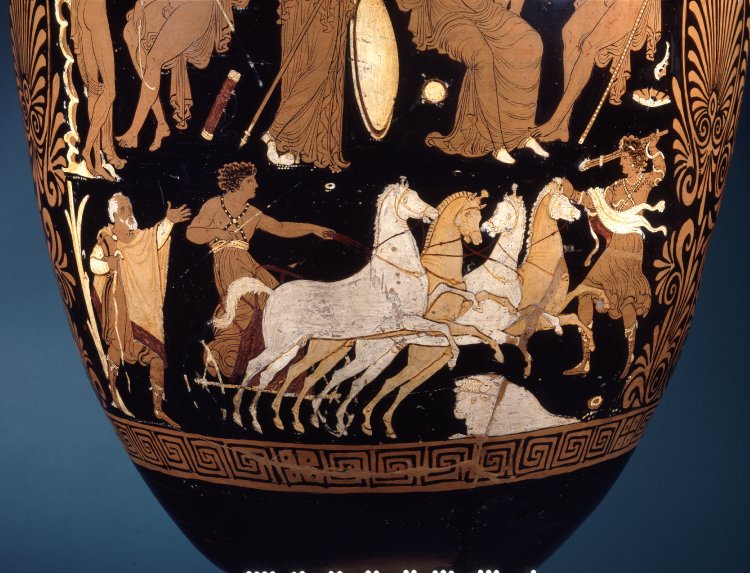How did the phrase ‘Project Fear’ get into the Brexitian rhetorical arsenal and gain such traction? Well, the truth seems to be that during during the Scottish Independence Referendum of 2013, members of the Better Together Campaign first used the phrase as an office joke about themselves, in anticipation of their opponents’ criticisms. Some journalists at The Herald got wind of all (or some) of this and a private joke became, as the The Guardian’s Ian Jack puts it, ‘a godsend for the SNP, which could now rebrand every unionist objection to independence as nothing more than scary propaganda’. It seems to be doing the same (or better?) rhetorical work for the pro-Brexit politicians and newspapers.
When their claims are branded as ‘Project Fear’, the Remainers’ rebuttals take various forms: distancing (‘others may be using the negative ‘fear’ card but I am going to stress the positive case)’; counter-attack (‘it is actually the Brexiters who are scaremongering and exaggerating with talk of European armies, uncontrollable immigration etc.), re-labelling (we’re not doing Project Fear, we’re doing Project Fact) and re-framing (it’s legitimate to stress the problems and risks of Brexit, even if they stimulate fear, because the other side hasn’t detailed any credible solutions to those problems and possible negative outcomes. People should be anxious).
That last strategy, while rarely heard so explicitly, hints at the potentially positive role which fear and anxiety can have in contexts where the public is deliberating and voting. Several psychological studies* have shown that the more anxious we voters feel about a particular political issue and/or an impending decision we have to make, the more engaged and questioning we become – we actively seek out further information, expert opinion and factual evidence about that issue rather than going with our ‘gut feeling’ about it or simply voting for the the side whose advocates we warm to the most. The information which fearful and anxious voters seek is ‘broader and more balanced, as it is less shaped by partisan or other confirmatory biases’ (Brader and Marcus 2013: 185*). Fear and anxiety can actually create a better-informed voting public than emotional sanguinity or indifference.
This might seem a surprising or even distasteful thing to write in the current divisive atmosphere and in the wake of a heartbreaking murder of an MP: the whipping up of ‘fears’ over immigration and free movement doesn’t seem likely or designed to create a better-informed electorate. As Stephen Kinnock rightly said yesterday in his tribute to Jo Cox, ‘rhetoric has consequences’.** But I am sure that the dominant emotion being worked on by certain rhetorical tactics from some (not all) elements on the Brexit side is not fear but anger. The psychological research* offers a completely different picture when voters primarily feel anger about an issue or against an identifiable group:
‘…anger appears to reduce the amount of time actually spent visiting political websites, shrink the number of web pages visited, and narrow searches to opinion confirming sources, produce less thoughtful opinions, and inhibit accurate recall of information. In sum, these findings confirm that there exist two different decision-making modes, one triggered by anger, focusing on defence of extant convictions and hence disinterested in disconfirming evidence or new information triggered, and a second more deliberative and open mode that is triggered by anxiety.’ (Brader and Marcus 2013, p.185).
Ancient theorists of rhetoric had some sense of this. Aristotle’s treatise On Rhetoric famously stresses from the start that it is important for an orator to stimulate emotion (pathos) in his audience because our judgements are affected by what frame of mind we are in. Later on he devotes a substantial section to the workings of various human emotions (anger, calmness, friendliness and so on) and has several pages about what fear is and what makes people fearful. Now, this doesn’t mean that he thinks a speech will or should persuade people simply by pressing the emotional buttons which suit the circumstances: it’s important to show that one is saying something right and true by having a logical argument which appeals to evidence and, famously, the speaker also has to project a character (ethos) which is credible and fair-minded. And Aristotle is explicitly critical of other rhetorical writers who focus solely on the manipulation of emotions. But this passage of the Rhetoric on fear seems especially salient (2.5.14-15, trans. G. Kennedy):
‘Those experiencing, and thinking they experience, great good fortune do not think they might suffer. Therefore they are insolent and belittlers and rash (wealth, strength and an abundance of friends makes them so); nor are those afraid who think they have already suffered all dreadful things possible and have become coldly indifferent to the future, like those actually being done to death. For fear to continue there must be some hope of being saved from the cause of the agony. And there is a sign of this: fear makes people inclined to deliberation, while noone deliberates about hopeless things. The result is that whenever it is better for a speaker’s case that the members of the audience experience fear, he should make them realize that they are liable to suffering.’
If a political speech or argument makes us anxious or afraid, it isn’t necessarily designed to make us abandon our powers of logic or evidence-based reasoning. Rather, it is a way of grabbing our attention and ensuring that we use those powers to assess, and deliberate upon, the risks, vulnerabilities and liabilities to ourselves which it raises and claims.
*These studies are summarized and fully referenced in Ted Brader and George E. Marcus ‘Emotion and Political Psychology’, pp. 165-204 of L. Huddy, D. O. Sears and J. Levy eds. (2013) The Oxford Handbook of Political Psychology. Oxford University Press.
** To donate to charitable causes in honour of Jo Cox, go here: https://www.gofundme.com/jocox







 Photograph: Philippe Huguen/AFP/Getty Images (from The Guardian)
Photograph: Philippe Huguen/AFP/Getty Images (from The Guardian)